Jiangsu's TCM "dream team" wins over the British public
A silver needle and a wisp of herbal fragrance traverse time, connecting East and West.
video
Rochdale Town Hall in Greater Manchester was packed with visitors for the opening of the 2025 "Jiangsu Traditional Chinese Medicine Go Global - TCM Culture European Tour" on October 3. Authentic medicinal materials, acupuncture and Tui na, medicinal cuisine and teas — Jiangsu's distinctive TCM elements were on full display and won over British audiences.
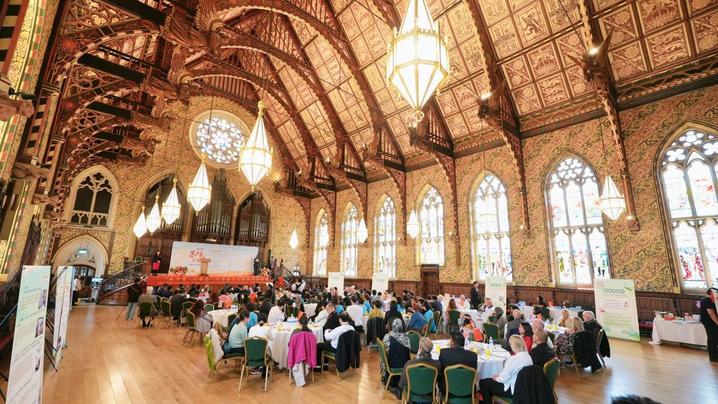
A New Landscape of International TCM Exchange
"My right thumb kept trembling and none of the many doctors I saw could do much about it. A friend suggested I try TCM." Local resident Nadir Khan had just received an acupuncture treatment and was delighted to give a thumbs-up — the tremor had eased noticeably.
"In the UK, more and more people are learning about and embracing TCM." Rochdale Mayor Janet Emsley told reporter. She noted that acupuncture is used to relieve chronic pain, herbal medicine is used in wellness and recuperation, and Tui na massage and moxibustion help improve quality of life. TCM not only treats illness but also prevents disease, guiding people toward a healthier lifestyle. This aligns with Europe's longstanding emphasis on prevention and health-first principles. "In the future, we look forward to strengthening ties with Jiangsu in medical cooperation, academic exchange, and talent training. We also hope TCM culture will enter more communities and schools, becoming a bridge that enhances understanding and fosters friendship." Emsley said.
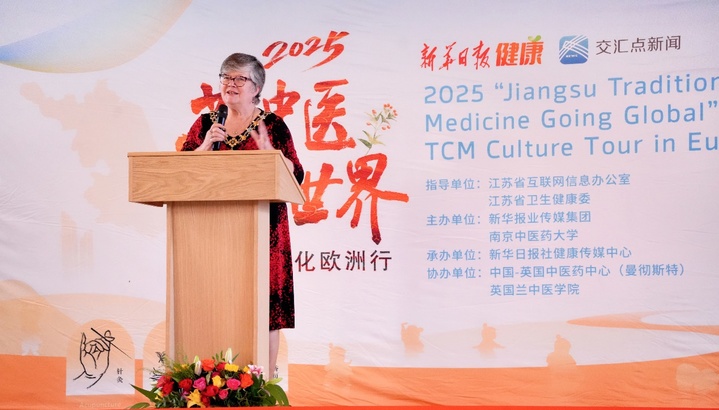
In fact, TCM has already become a new bridge for China–UK exchanges. Tang Rui, Consul General of China in Manchester, said not only in the UK but across Europe, TCM enjoys growing recognition and holds broad application prospects. He expressed hope that Jiangsu will engage more with overseas TCM practitioners, make full use of its abundant domestic resources, and help TCM "go global, take root, and thrive".
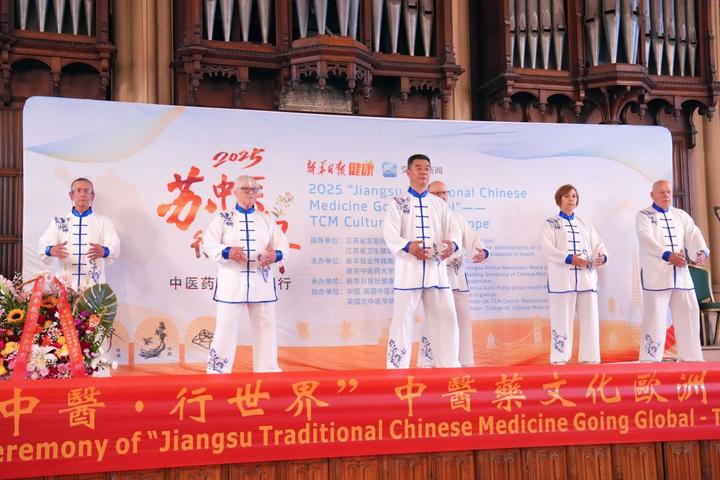
The event was guided by Jiangsu's Cyberspace Administration and the Jiangsu Provincial Health Commission, and co-hosted by Xinhua Daily Media Group and Nanjing University of Chinese Medicine. The China–UK TCM Centre (Manchester) and the Shulan College of Chinese Medicine provided strong support.
"Jiangsu has long been an important birthplace of TCM cultural exchange. From Xu Fu's voyage east in search of immortality herbs to Zheng He's expeditions to the West, the province has left a historical imprint on cross-cultural TCM exchange," said Zhao Ming, deputy director of the Jiangsu Provincial Cyberspace Administration, "We hope to use this event as an opportunity to further promote China–UK exchange and mutual learning."
"Acupuncture clinics have existed in the UK since the 1960s, and Chinese herbal shops opened one after another." said Tang Shulan, president of the Shulan College of Chinese Medicine in the UK and chair of the China–UK TCM Centre. She has promoted TCM diagnosis, treatment, and education since the 1990s, and has now trained over 2,000 "foreign TCM doctors".
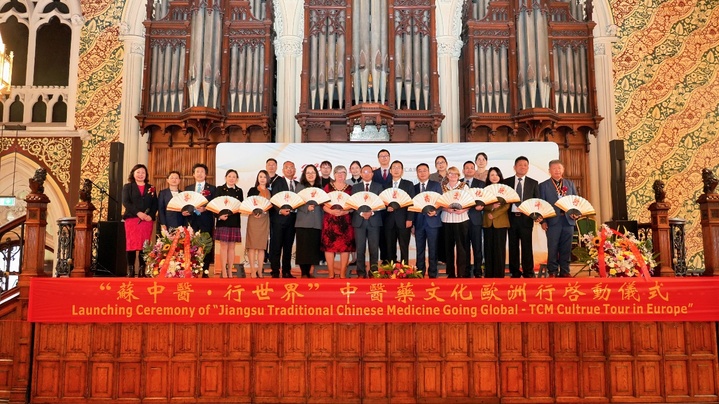
A TCM Bridge of People-to-People Bonds
During the showcase, experts from Nanjing University of Chinese Medicine, Nanjing Integrated Chinese and Western Medicine Hospital, Wuxi TCM Hospital Affiliated to Nanjing University of Chinese Medicine, Changzhou TCM Hospital, and Yangzhou TCM Hospital each brought their signature expertise.
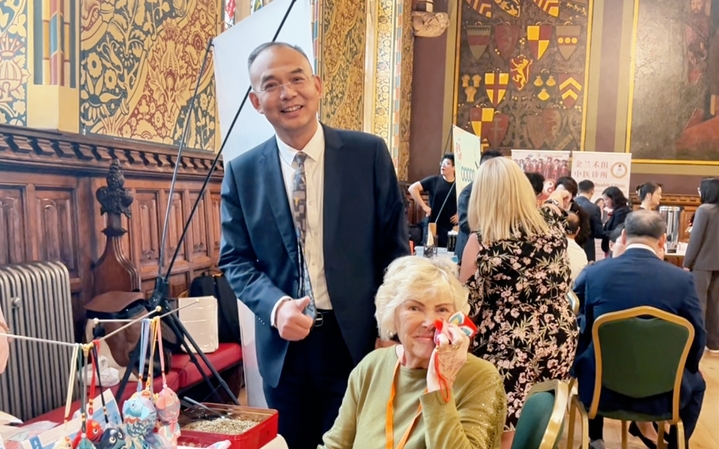
The booth of Yangzhou TCM Hospital drew crowds of curious onlookers. Lifelike, colorful "goldfish" herbal sachets instantly captured hearts. Hospital president Xu Yixiang explained that these are not merely ornaments; they are filled with various aromatic herbs with effects such as dispelling dampness and warding off foulness, as well as calming the mind. A Manchester resident named Ellen couldn't put down the goldfish sachet she had made herself: "The scent is so unique — so soothing to smell."
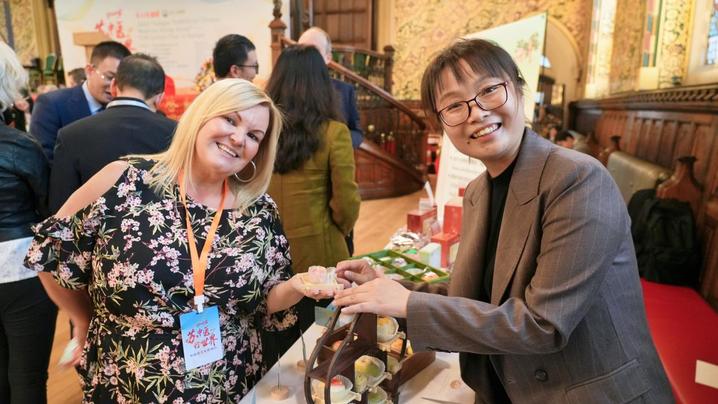
Nanjing University of Chinese Medicine presented a combination of TCM culture and Jiangsu's intangible cultural heritage. Exquisite, bite-sized "Jinling ICH Medicinal Tea Pastries," inspired by China's food-as-medicine tradition, together with pages from TCM classics printed using Yangzhou's national-level intangible cultural heritage woodblock technique, attracted visitors to stop and explore.Liu Danqing, deputy director of the university's Publicity Department, said, "We hope everyone can feel the unique charm of TCM culture 'integrated into life and living' amid rich Chinese flavors and a scholarly fragrance." Councillor Naila Sharif created a page from a classic TCM health-preservation work by herself, "So beautiful — this is truly art!" she exclaimed, saying she would take it home as a treasure.
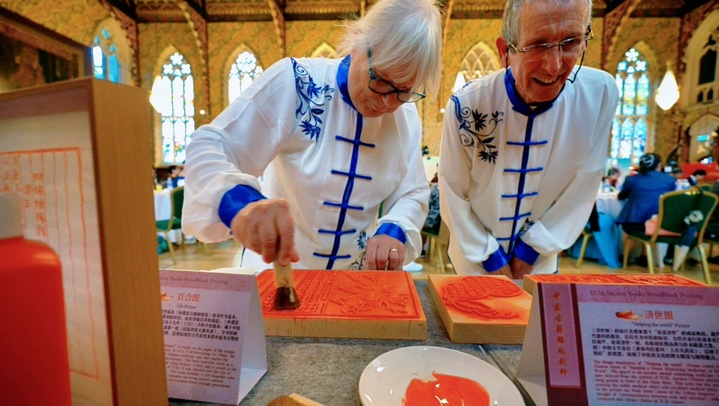
Professor John Haskell of the University of Manchester enthusiastically showed the reporter a variety of medicinal teas offered by Wuxi TCM Hospital, while Associate Chief TCM Physician Peng Jian patiently explained the effects of each blend. Haskell said when he developed digestive issues, he turned to TCM, and he has been closely connected with it ever since. He followed Peng's lead and carefully pronounced the name of one blend, "Ye-men er Cha" (colloquially "Men's Tea"), prompting laughter from the crowd.
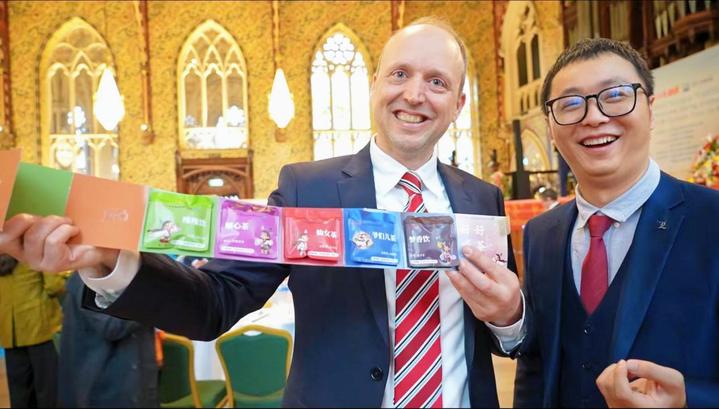
Lu Zhigang, director of Rehabilitation at Changzhou TCM Hospital, turned many first-time participants into loyal fans of TCM Tui na with his skillful techniques. Mayor Emsley eagerly sat down to experience it. Lu's practiced and precise manipulation — kneading, pressing, pushing, and grasping — relieved her neck and shoulder fatigue.
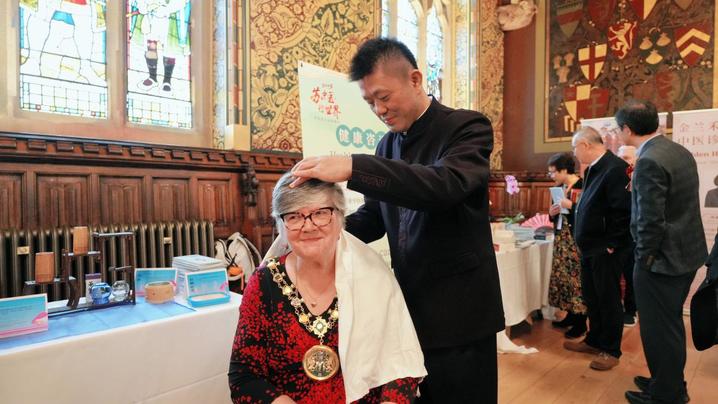
New Reflections on TCM Heritage
After touring the exhibition, Stockport Mayor Kerry Waters told reporters that Chinese medicine is truly remarkable — healing from the inside rather than just on the surface. "I haven't tried acupuncture yet, but I think it's time I gave it a go."
Lu Xiwan, director of Endocrinology at Wuxi TCM Hospital Affiliated to Nanjing University of Chinese Medicine, twirled a slender silver needle between her fingers as she invited visitors to experience this "mysterious" power from the East. "I treated more than a dozen people with acupuncture today, and I was surprised by how high the local acceptance of Chinese acupuncture turned out to be."
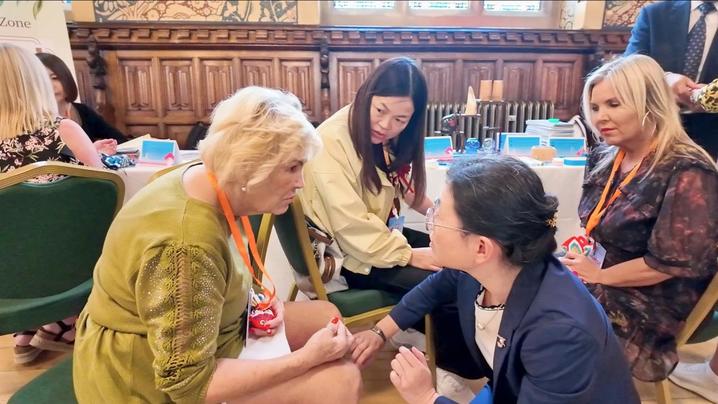
Huang Zihui, chief TCM surgeon at Nanjing Integrated Chinese and Western Medicine Hospital, had similar impressions. She said that during the event, an 84-year-old local resident named Martin sought her out, saying that three generations of his family are fans of TCM and that when health issues arise, they think of TCM first.
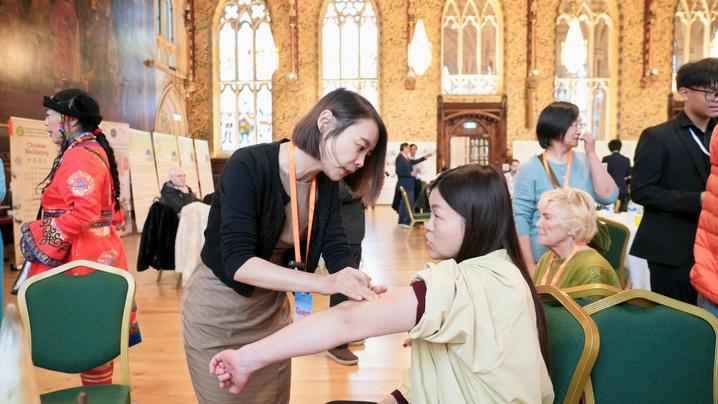
The enthusiastic response from participants also boosted the confidence of Jiangsu's TCM professionals and sparked fresh thinking. This was not only a cultural showcase but also a dialogue on health and a building of trust.
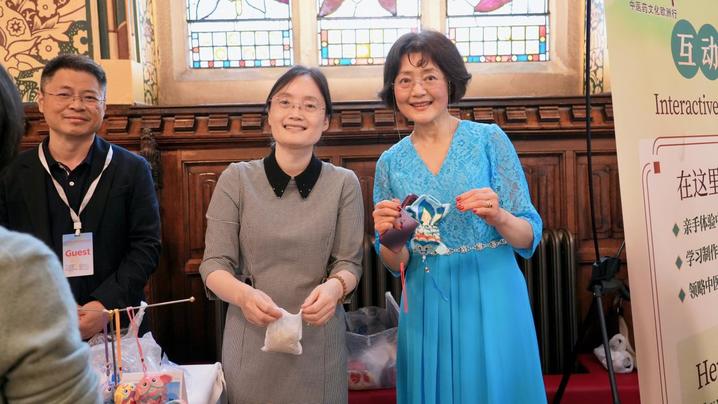
Wang Jingui, deputy president of Wuxi TCM Hospital, was touched: "This event made us deeply appreciate the necessity and importance of spreading TCM culture to the world. Its cross-cultural recognition touched us and will inspire us to better inherit this ancient wisdom and infuse it with new vitality for our times."
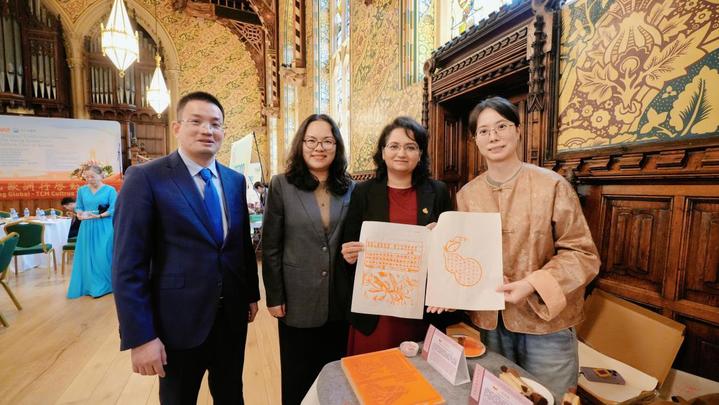
Source: Xinhua Daily/Intersection News